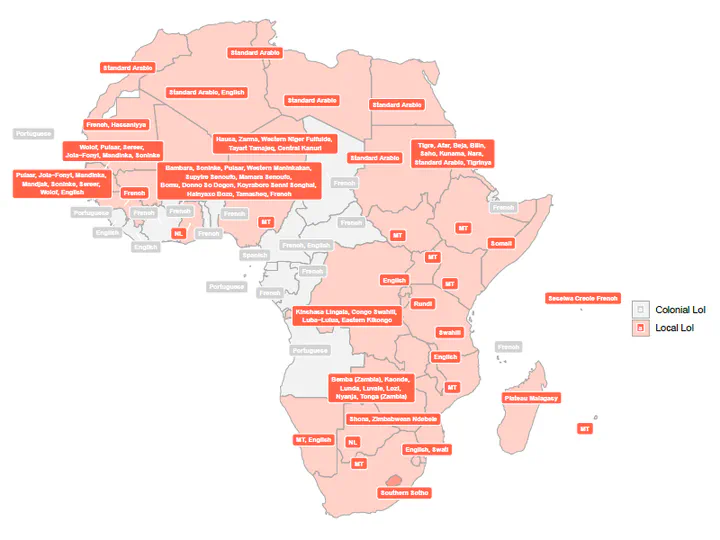Unveiling the global determinants and effects of bilingual education policies in Africa
 Map of the language of instruction at the beginning of primary education.
Map of the language of instruction at the beginning of primary education.Abstract
Despite the linguistic consensus that learning in one’s mother tongue is better for learning, some African countries still use the colonial language as the official language of instruction in primary schools. This paper investigates the determinants and impacts of bilingual education reforms in Africa, which have replaced colonial languages with local languages as the medium of instruction since independence. Utilizing a unique dataset on linguistic policies, I find that a British colonial legacy and lower ethnolinguistic diversity increase the likelihood of implementing such reforms. An analysis of microdata from 18 countries covering almost 3 million of individuals reveals that these policies marginally enhanced schooling and learning outcomes, particularly for women and in countries prioritizing a large integration of local languages in education. The findings highlight the modest benefits of bilingual education and the challenges in its implementation, with implications for education policy in post-colonial settings.
Type
Publication
Working Paper